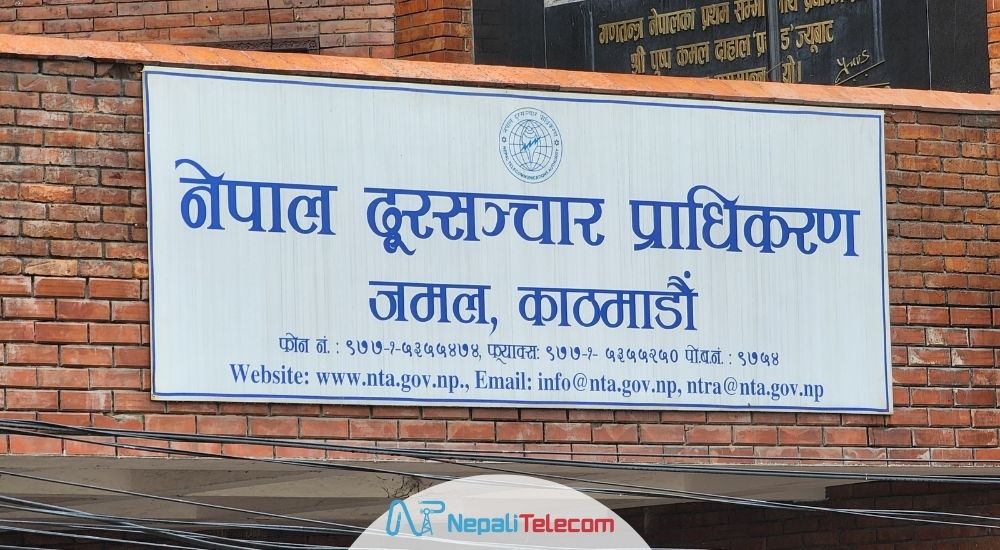– Ananda Raj Khanal, Chairman, Nepal Digital Leads, a not-for-profit company working in the Digital Transformation Ecosystem of Nepal and former Senior Director, Nepal Telecommunications Authority.
In my capacity as an academic, researcher, and professional with extensive experience in shaping Nepal’s Telecommunication and ICT sector through policy, legal, regulatory, and technological contributions, since almost last 3 decades I have endeavored to explore various facets of Data centers and cloud services, both in a broader context and within the context of Nepal. It is my hope that this article provides valuable insights to all stakeholders in a clear and easily understandable format, facilitating a shared understanding and fostering clear and unequivocal communication on these critical issues. I acknowledge the inspirational and persuasive call of Deepak Shrestha, the Managing Director of DataHub Nepal and Director of Subisu Cablenet Pvt. Limited, a luminary in Nepal’s ICT sector, motivating me to champion evidence-based policies and international best practices compliant business models through my articles in shaping the course of our digital journey.
This article delves into the transformative potential of data centers and cloud services in propelling Nepal’s digital economy. Beyond statistics, this article explores the multifaceted aspects of these technologies, elucidating diverse stakeholder perspectives, addressing challenges and opportunities, outlining the government’s role, advocating for a digital ecosystem fostering innovation, and providing guidance for Nepal’s digital future. It emphasizes the profound impact of the digital economy on innovation, productivity, and competitiveness, with data centers and cloud services playing a central role in economic growth, business expansion, and public services.
Nepal’s Digital Aspiration and the Reality:
As Nepal embraces the digital era, the significance of data centers and cloud services becomes evident. The Finance Minister’s emphasis on the digital economy’s role is validated by IIDS data, indicating a 64.2% growth in Nepal’s IT service export industry, reaching USD 515 million in 2022. The surge, fueled by 106 IT service export companies and a workforce of 14,728 IT freelancers, underscores the central theme of this article: the crucial role of data centers and cloud services.
The surge in Nepal’s internet usage, with a broadband penetration of 135% as of mid-July 2023, reflects a digital shift driven by smartphones and affordable broadband. This surge benefits both urban and remote areas, fostering growth in e-commerce, fintech, e-learning, and startups. Despite this potential, Nepal faces challenges such as infrastructure gaps, unfriendly regulations, insufficient digital literacy, cybersecurity concerns, and a lack of human and financial capital.
Recognizing data centers and cloud services as vital for the digital economy, this article underscores their role in housing critical systems and offering on-demand resources. Nations leveraging these technologies experience enhanced productivity, innovation, job creation, foreign investment, improved public services, global competitiveness, and disaster resilience.
Research indicates the substantial growth of the data center market, with a projected market size of USD 602.76 billion by 2030. Global examples from Estonia, Singapore, Australia, India, the United States, and Malaysia illustrate how a holistic approach to digital development can lead to robust governance, cybersecurity, thriving tech ecosystems, and economic growth.
Check out: Nepal Telecom to bring 200 Gbps internet bandwidth from Tata and Airtel
Stakeholder Perspectives:
Nepal’s digital transformation must be viewed through a multifaceted lens, considering diverse perspectives and stakeholder roles. The government’s vision, coupled with effective strategies, underpins the nation’s digital trajectory. For businesses, data centers and cloud services are transformative, enhancing operations, scalability, and competitiveness across sectors like e-commerce, fintech, and IT services.
Tech entrepreneurs and innovators play a pivotal role in driving Nepal’s digital future, with data centers and cloud services enabling startups. Academic institutions contribute significantly by shaping digital skills, workforce supply, and engaging in research and development initiatives. Bridging the digital divide and ensuring equitable access are reflected in the perspectives of rural, unserved, and underserved communities.

Risks and Mitigation:
However, the digital realm in Nepal faces cyber threats, emphasizing the importance of data security and privacy. Collaborative efforts are needed to enhance cybersecurity through legal, technical, and organizational measures, capacity building, and cooperation at national, regional, and international levels.
Individuals and consumers highlight the benefits of digital services, acknowledging challenges in digital literacy and data privacy. Civil society organizations advocate for digital rights, literacy, and social inclusion, utilizing technology for social and environmental causes. Collaborations with international organizations, governments, and tech companies present opportunities for Nepal’s digital sector, shaping global digital engagement.
Recognizing data centers and cloud services as key infrastructure for dependable digital services, this article emphasizes the need to nurture a skilled digital workforce. The diverse viewpoints presented offer a comprehensive portrayal of Nepal’s digital landscape, emphasizing the intricate nature of its transformation journey.
While challenges persist, including the urban-rural digital service gap, digital infrastructure disparities, data protection, and cybersecurity concerns, opportunities abound.
Check out: Smart City in Nepal: More Digital Infrastructure and Digitization Needed
Opportunities:
Government initiatives for rural connectivity, encouragement of tech startups, attracting foreign investments, fostering innovation, and leveraging a skilled workforce reflect the potential for growth in areas like tourism and e-commerce.
The foundation of Nepal’s digital transformation lies in government support and the right policy framework. A comprehensive digital strategy should encompass data protection laws, digital skills development, infrastructure investment, public-private collaboration, cybersecurity regulations, and data localization policies. Incentives for growth, digital literacy programs, and international collaborations are vital components.
Collaboration and innovation within the industry are paramount, drawing inspiration from global best practices. Efforts should focus on creating internationally renowned innovation centers, fostering industry-academia partnerships, and encouraging research and development initiatives. Skill development, workforce training, and cross-industry collaboration must be prioritized to nurture the startup ecosystem.
Conclusion:
Nepal stands at a pivotal juncture, ready to embrace the digital era. The path forward involves clear vision and decisive actions across various sectors outlined in this article. By leveraging data centers and cloud services, Nepal can redefine its future, transforming into a digital powerhouse. The call to action resonates across stakeholders, urging government policies, industry innovation, academic partnerships, civil society advocacy, and individual empowerment. The digital future is here, and Nepal stands poised to answer the call, with the journey already underway.












